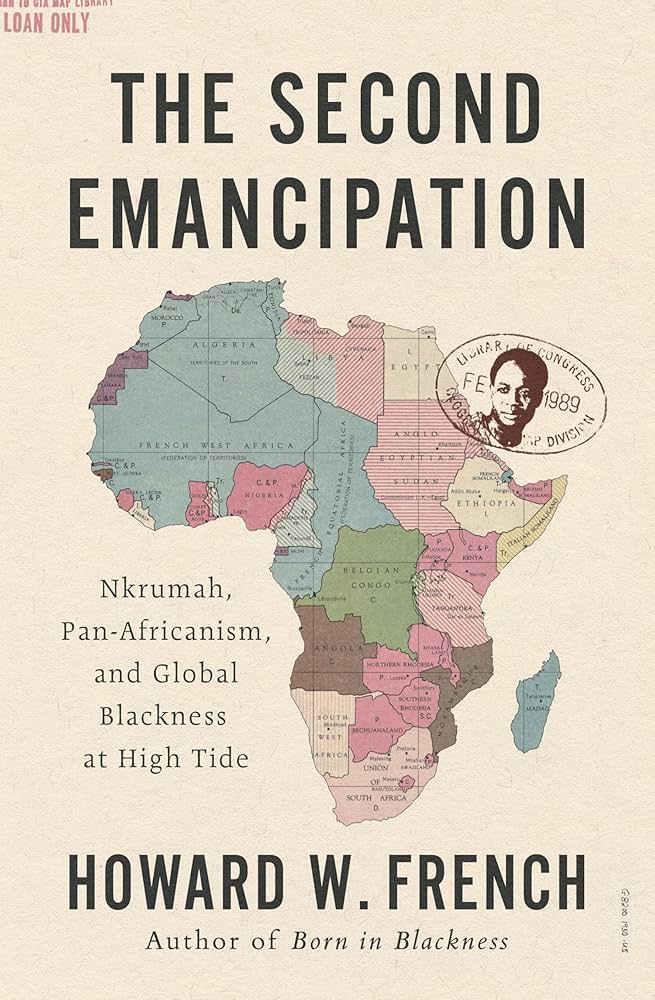In the United States, where he would spend nearly a decade, Nkrumah majored in sociology at Lincoln University, enrolled in the theological seminary, and earned master’s degrees in education and philosophy from the University of Pennsylvania. While he studied, taught, and spoke in various public forums, Nkrumah’s “compass was fixed on the liberation of his continent, and most of his intellectual pursuits were bound up in his busy search for answers to the challenges of ending colonial rule and economic dependence on the West,” French writes. Nkrumah devoured everything about Pan-Africanism, which in its initial form (posited by intellectuals like James Beale Horton, Martin Delany, and J.E. Casely Hayford) explicitly responded to Western imperialism and focused on the development of a free state. Some scholars proposed a regional university in West Africa that could serve as a hub for a new imperial core, while others suggested Africans return to Indigenous forms of self-government, in which otherwise autonomous communities formed a united federation. Later versions, especially the kind promulgated by W.E.B. Du Bois, focused on intellectual unity, moral questions, and diplomatic relations between Africa and her diaspora. Both schools of thought emphasized an idea that Nkrumah found deeply compelling: the interdependence of Black people across the world. By the early 1940s, French writes, Nkrumah was fully invested in the notion “of a shared past in racial domination between Africans and African Americans” and “a closely paired future.”
In May 1945, at the tail end of World War II, he left the United States for London, where he met the Trinidadian journalist George Padmore by way of C.L.R. James. Both men were critical to Nkrumah’s intellectual development; they took him under their wing and helped him to fortify and clarify his positions. Through Padmore, especially, Nkrumah came to appreciate the urgency with which Africa’s colonies needed to seize “the levers of government.”
Armed with these experiences, Nkrumah returned to Ghana in 1947. This was a pivotal period in global politics, when colonized peoples were “increasingly alive to the injustice and humiliation” of the current system. Nkrumah dove headfirst into organizing. He joined the UGCC (the organization headed by Grant, who hosted him in Liverpool) and quickly took to its revitalization. He gave speeches around the country and launched local party offices, which helped galvanize once disparate colonial subjects under a single banner of unity. He became a sensational force and a thorn in the side of the British.
